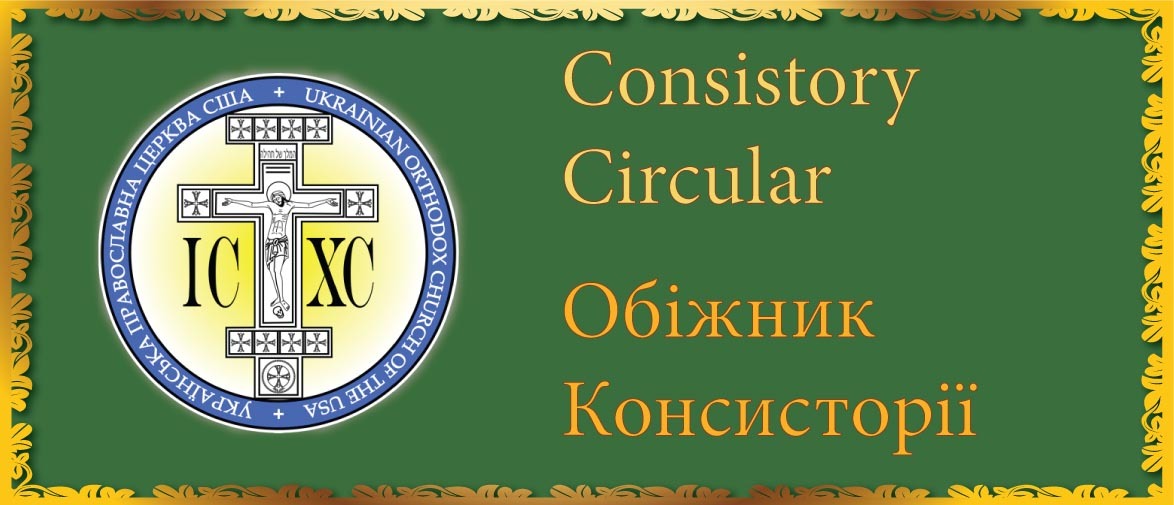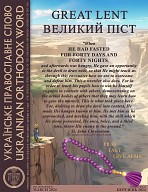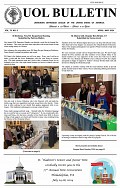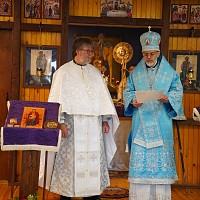This is a difficult Sunday for Orthodox Christians. Not as difficult as St. Mary of Egypt, perhaps, but nonetheless a day that convicts us and confronts us with our Lenten practice. Let’s face it: many Orthodox are exceedingly lax in Lenten disciplines. Laziness may be the heart of the problem, and we should not let ourselves off the hook too easily, but it is not the sole reason.
We are not living in the old countries where the Fast is part of the general rhythm of life. We are not living where the culture makes allowances for the rhythm of the liturgical year. If anything our compatriots in these United States of America think we are slightly (or significantly) daft for observing Lent with anything more than lip service. Most Christians simply ignore it. The culture as a whole has this great Carnival (“farewell to meat”) on Mardi Gras whose original significance they don’t really understand, and then a few Christians will enter into Lent with sobriety but with nothing near the stringent disciplines of Orthodoxy.
When we get to the Sunday of St. John of the Ladder we’re standing on shaky ground. Who of us ever mentions St. John and his book to anyone we know who is not Orthodox? Who of us Orthodox have even read it? Once the book had great provenance among us, but we do not know if many people read it today. Only in a few parishes do enough people show up to hold Wednesday daily offices when chapters of The Ladder of Divine Ascent are read. And yet we sing, “On the height of abstinence did the Lord place you, O our Father and Teacher John, as an unerring star which enlightens the ends of the earth” (Kondak). What is father St. John Climacus teaching us?
Metropolitan Kallistos Ware tells us that, “he forms the pattern of the true Christian ascetic” (Lenten Triodion, p. 53). St. John lived in the 6th an 7th Centuries; he was the head of the Monastery of St. Catherine at Mount Sinai. He wrote the book to assist monks in their Lenten observance, and it is divided into thirty “steps,” as on a ladder, and the thirty steps remind us of the years of Jesus’ life. Actually St. John called them in Greek logoi, “words,” meaning words of instruction to the monks, but we mostly know them as steps.
We ascend the ladder through prayer, fasting, and charity, and St. John leads us through what I would call the attitudes needed for the spiritual life, such as repentance, detachment, and compunction. Often he gives examples or stories about people who have confronted bad attitudes and overcome them. After these initial seven chapters, he writes in detail of how to build up the virtues and overcome the passions of vice we often call the seven deadly sins.
St. John is a man of wonderful pithy sayings, and one of them we might hold in mind during this season is this: “As one who has suffered a prolonged illness can scarcely obtain health in an instant, so it is impossible suddenly to overcome the passions, or even one passion” (26:55). We ought to etch this one in our minds for ongoing reflection, and be kind to ourselves.
Lastly, after summing up the preceding words in step 26, he gives four words of instruction on the higher virtues of solitude, prayer and dispassion that lead us ultimately to self-giving love, the supreme virtue that we encounter in God. The translation “dispassion” is somewhat clumsy, but it avoids the word apathy, the Greek word St. John uses. Unfortunately for us apathy has come to mean an attitude of non-caring and of disregard. This is not what the Fathers or St. John meant by the word, however; for them it means to be so intimately connected to God that you can refuse the beguilements of this world. It means to be detached from the things that hook your soul, that lure you into passion in the wrong sense of the word. St. John Cassian called it “purity of heart” and by that name the concept entered the western church. It is nothing less than spiritual freedom from those words and deeds that might entice and entrap you.
“Many have soon obtained forgiveness, but no one has obtained dispassion quickly; this needs considerable time, and love, and longing, and God” (The Ladder 26:58).
Lent is the heightened time for work on our lives, not that our work will save us. Christ has already done that through his life, death and resurrection whose annual celebration we anticipate and that we enter through our baptism and chrismation and by our ongoing reception of the Eucharist and the word of forgiveness. But we work on ourselves to ascend the ladder of virtue, “to grow up in every way into him who is the head, into Christ” (Ephesians 4:15 RSV) and St. John of the Ladder has given us many tools with which to carry on our work. He is well worth reading anew or for the first time as a guide to things divine; as we sing in today’s Tropar, “You received heavenly gifts through fasting, vigil and prayer. You heal the bodies and souls of those who approach you in faith.”
Remember that the point is love. It is agape. Love from God. Love for God. Love for neighbor. Love for the creation and for creatures. Proper love for one’s self. By following the guidance of St. John on the steps of the ladder, we are healed and so will our world be healed by the love of God working in us.
Fr. Gabriel Rochelle
|
| |||||||||||












